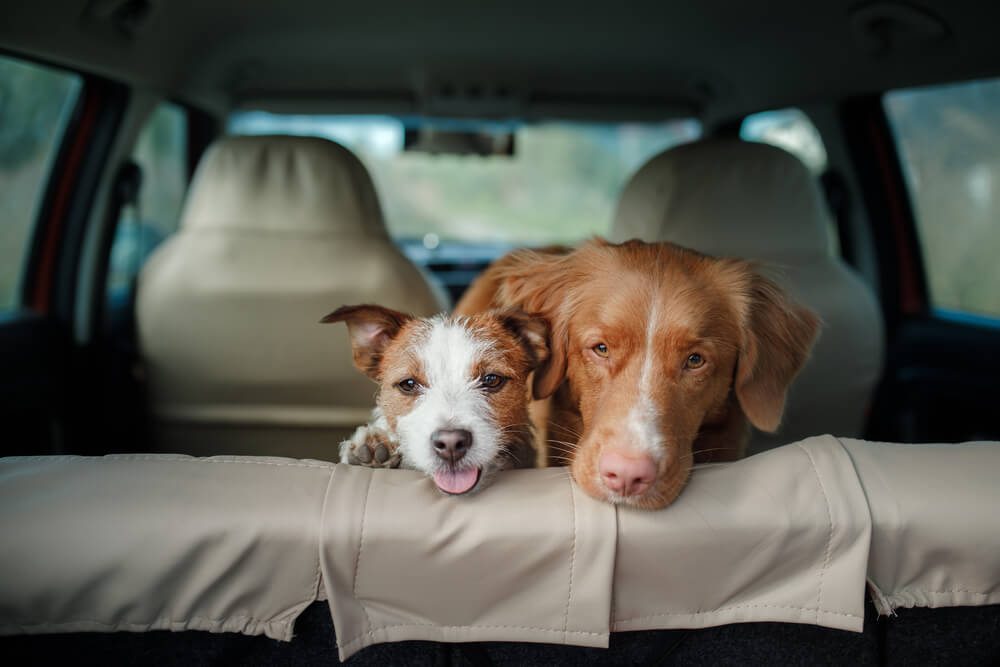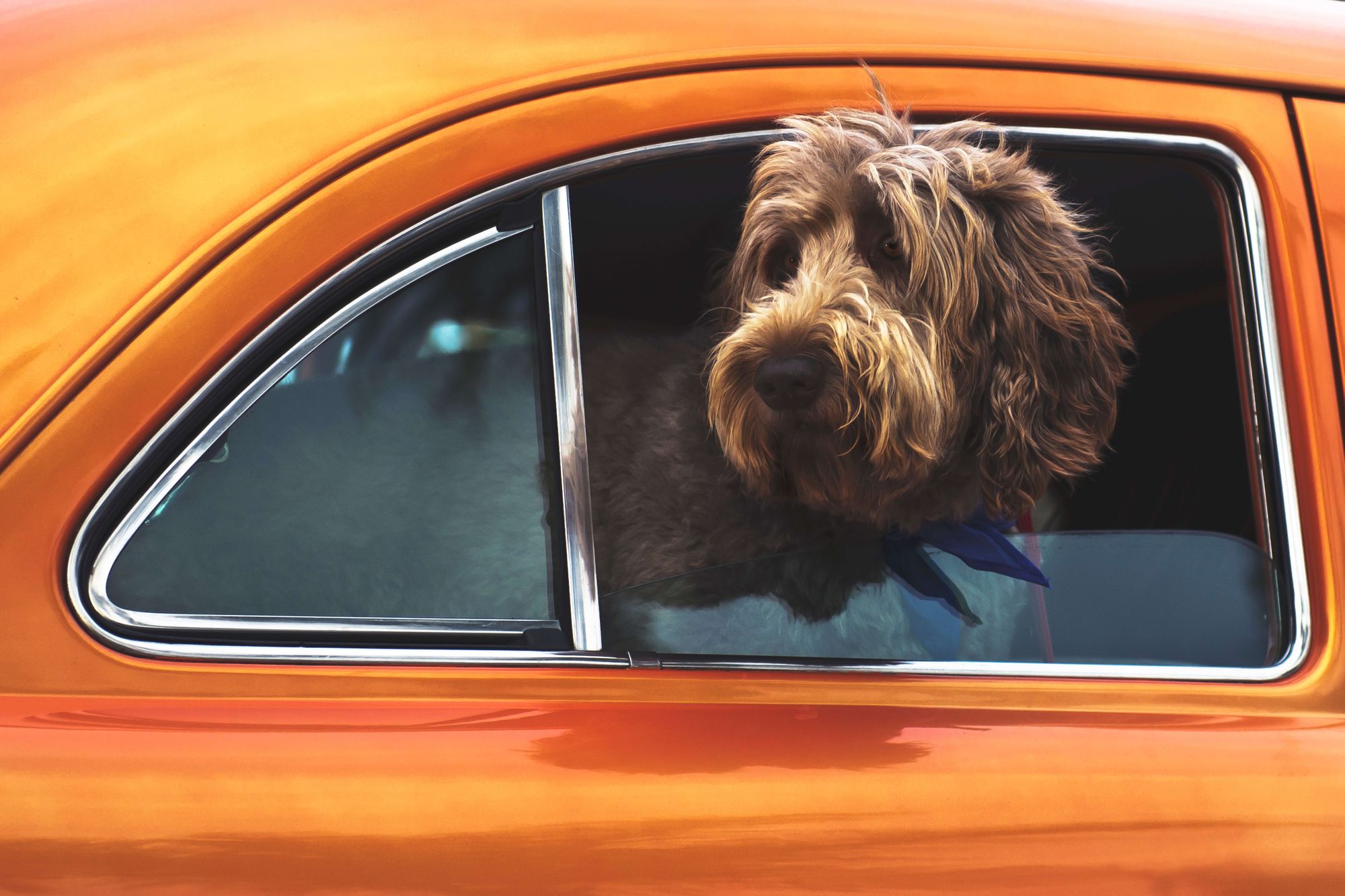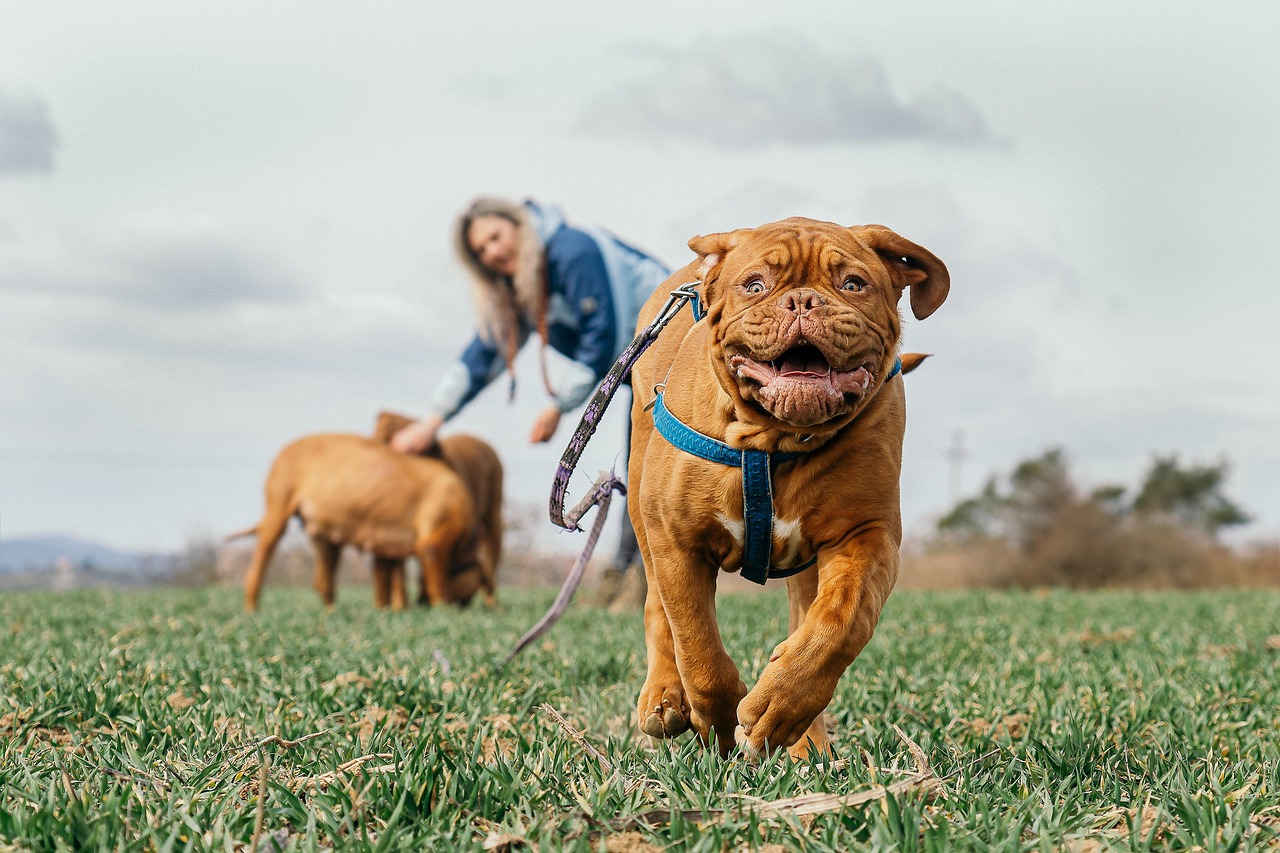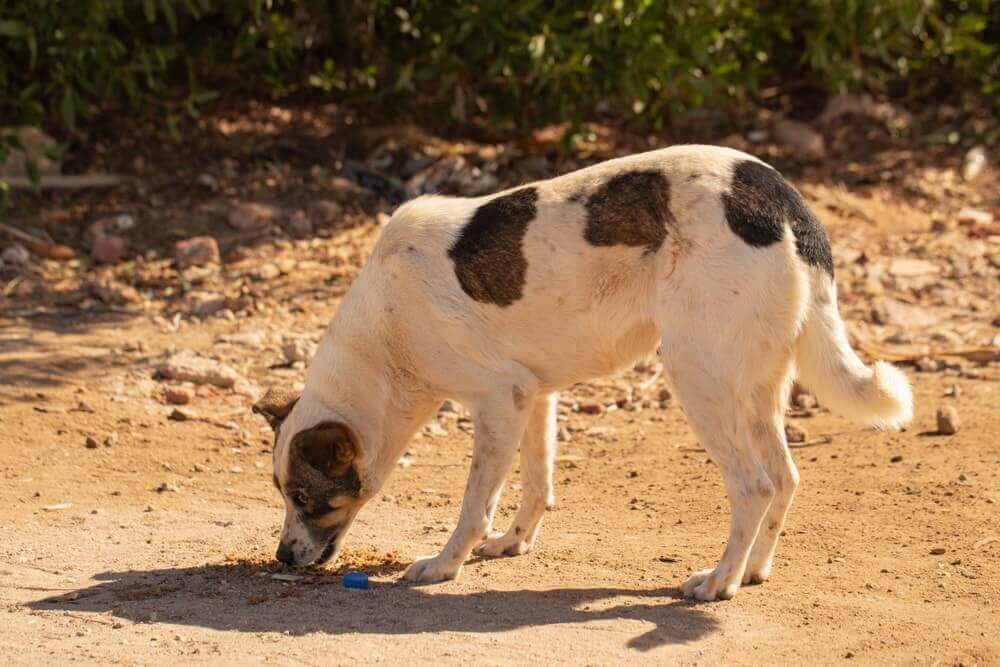Hey Ollie blog readers! We’re offering you an exclusive 60% OFF your starter box! Try now!
You’re psyched to hit the road this summer, but your pup might not be so thrilled if he’s throwing up in the backseat! About 7 million dogs suffer from motion sickness, according to a recent study, but only a quarter get treated for it. Learn how to spot motion sickness in your pup and what treatments work best if they need it.

What Causes Dog Car and Motion Sickness?
Like humans, some dogs get a disconnection between what their body’s sensory and motion input systems are telling their brains, explains Jason Nicholas, president, and chief medical officer at Prevention Vet.
So if their eyes are telling them that they’re not moving (maybe they’re too short to see out the window, or they’re looking sideways in the car) but their inner ears are telling them that they’re moving forward, the disconnect can trigger motion sickness.
What are the signs and symptoms of motion sickness?
Since your dog can’t tell you when they’re feeling car sick, look out for the following warning signs and symptoms:
- Whining
- Pacing (you may not see this one if your pup is restrained in a car seat or seatbelt as they should be)
- Drooling
- Licking
- Yawning
- Vomiting
- Diarrhea
How can you prevent a dog from developing motion sickness?
Some dogs are more prone to motion sickness than others. That said, you can sometimes desensitize them to the car. Try taking short drives and building up to longer distances if your pet does well.
If you have a young puppy, don’t stress. Your dog may grow out of their motion sickness. Parts of the inner ear involved in balance are not fully developed in young puppies so they may experience motion sickness more frequently than older dogs. Many puppies will “outgrow” motion sickness by the time they are about 1 year old.
If your pet gets sick no matter how long or short the car ride is, even after they have hit the one-year mark, you have some options.
What are treatment options?
The treatment options for motion sickness will depend on why your dog is getting sick. Some pups truly are motion sick and others are vomiting or having diarrhea because they are stressed out from riding in the car. Determining which reason will help you determine the best course of treatment.
If you need medication for your pup, Meclizine or Dramamine are over-the-counter options that can help keep your pup comfortable in the car. If those don’t work, you can chat with your vet about Cerenia, a highly effective prescription medication for treating and preventing motion sickness in dogs. Your vet will be able to help you make a plan and use the treatment option that will work best for your pup.
Are there natural remedies?
Yes, there are some natural ways to help keep your pup from getting motion sickness. These include:
Skip a meal
Don’t feed your dog a few hours before taking a road trip. You know how you shouldn’t really stuff yourself before you go on a roller coaster? It’s the same concept. Water, however, might help settle his stomach, so always have a bowl available when you’re traveling. You may also want to wait for your pup to adjust to being out of the car before offering a meal to reduce the chances of it coming back up.
Make it a smooth ride
Lots of quick stops, sudden accelerations, and weaving can upset and overwhelm the vestibular center of the inner ear. Take it slow and steady, and make frequent pit stops so your pup can walk around and get plenty of fresh air. If you are taking a long road trip, consider where and when you will give your pup breaks along the route.
Adjust their seating
A smaller dog can be restrained in a booster seat so he can see out the window. Opening the window a little to get fresh air and equalize the air pressure in the car can also be helpful. Unlike the dogs you see in advertisements, don’t let your pup hang their head all the way out the window, as that can increase the risk of injury if your pup is hit with debris.
Make the car a fun place
While this isn’t a remedy it can certainly help! Keep your dog’s special toys in the car, and make sure to keep it cool and comfortable. If your dog likes their crate, you can crate them in the car to help them feel more comfortable.
Take more trips
Once you’ve gotten your dog a little more comfortable in the car, hop in more often! Take shorter trips that end at places your pup loves (the dog park, a play date) to desensitize them. Often, vomiting in the car is actually due to the stress and anxiety dogs experience with car travel, rather than motion sickness itself.
Traveling with your pup is a joy for many dog owners. If your trips with your pup have been less than joyful due to motion sickness, hopefully some of these tips will bring some relief for your pup so you can get back to the fun things.
The Ollie blog is devoted to helping pet parents lead healthier lives with their pups. If you want to learn more about our fresh, human-grade food, check out MyOllie.com.
Tagged As:

The nutrition your dog needs,
the food they want.

Enjoying our articles? Subscribe our Newsletters and get new articles directly to your inbox
You might also like
23 September 2025
6 MINS READ
Back to School: Training Your Dog at Any Age
As we hit back-to-school season rolls around, it’s not just kids who benefit from sharpening their skills and learning something new—our dogs can, too! Training isn’t limited to puppies or p…
by Ollie Pets
23 September 2025
7 MINS READ
Lace Up and Leash Up: A Beginner’s Guide to Running with Your Dog
Running is one of the simplest ways to stay active, and it’s even better with a canine companion. Not only does running with your dog keep you both in great shape, it also strengthens your bond …
by Ollie Pets
18 September 2025
8 MINS READ
Why Do Dogs Eat Rocks? Common Reasons & How To Stop It
Why do dogs eat rocks and is it dangerous? Learn what causes this behavior, what to watch for, and how to stop your dog or puppy from eating rocks safely.
by Gabby Slome







